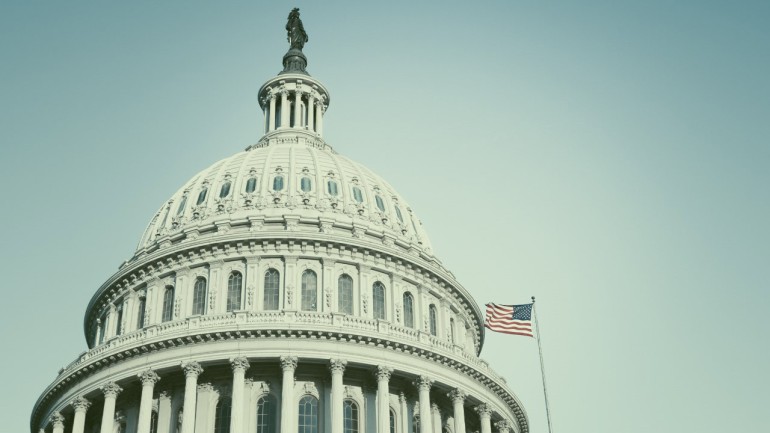Congress Approves New COVID Relief Package: What it Means for Music Creators

Update: On Sunday, December 27, President Trump signed into law this new pandemic relief package.
On Monday evening, Congress voted to approve a $900 billion relief package designed to aid small businesses, unemployed Americans, health care workers, and many others impacted by the coronavirus pandemic. This bipartisan legislation also includes several key provisions that will specifically help music creators. BMI worked with many in the music industry throughout the summer and fall to impress upon Congress the needs of songwriters, composers and publishers. The package passed last night is an important step in addressing some of these needs.
Regarding the new relief package, Mike O’Neill, President & CEO, BMI, stated,
We’re grateful that Congress has come together and passed this much needed relief package which will help many who have been impacted by this pandemic, including the songwriters and composers who have been hit particularly hard. This bill provides important relief for the self-employed, helps creators protect and enforce their rights, and importantly, provides funding for the live music venues which are so important to our songwriters’ livelihoods. We know there are still difficult months ahead, and BMI will continue working on behalf of our community, including advocating for any additional assistance needed to recover from the devastation caused by this pandemic.
While the package awaits President Trump’s signature, below is an outline of the benefits that can help music creators and copyright owners:
Economic Impact Payments
- One-time direct payments of $600 for individuals making up to $75,000 and $1,200 for couples making up to $150,000, as well as an extra $600 per eligible child dependent.
Unemployment Insurance Provisions
Provides enhanced unemployment insurance benefits through the Federal Pandemic Unemployment Compensation (FPUC) program. It provides an additional $300 per week to supplement all state and federal unemployment benefits, starting after December 26, 2020 and ending March 14, 2021.
- Extends the Pandemic Unemployment Assistance (PUA) program, which provides continued unemployment assistance to the self-employed, freelancers, gig workers, parttime workers and other individuals in non-traditional employment. It also increases the number of weeks of PUA benefits an individual may claim, from 39 to 50.
- Extends the Pandemic Emergency Unemployment Compensation (PEUC) program, providing additional weeks of federally-funded benefits to workers who have exhausted their regular state unemployment benefits. It also increases the weeks of PEUC benefits an individual may claim, from 13 to 24.
- Provides a federally funded $100 per week additional benefit for “mixed earners,” individuals who have at least $5,000 a year in self-employment income but are disqualified from receiving Pandemic Unemployment Assistance because they are eligible for regular state unemployment benefits.
Paycheck Protection Program (PPP) Funding
Provides $284 billion for the Paycheck Protection Program (PPP) and extends PPP through March 31, 2021.
Changes to PPP include:
- Provides a second PPP forgivable loan for the hardest-hit small businesses and nonprofits with 300 or fewer employees and that can demonstrate a loss of 25% of gross receipts in any quarter during 2020 when compared to the same quarter in 2019;
- Creates a set-aside for very small businesses with 10 or fewer employees.
Save our Stages Act:
- The bill provides $15 billion for SBA grants up to $10 million to live venues, independent movie theaters, and cultural institutions to address the economic effects of the pandemic. Grants can be used to cover expenses such as payroll costs, rent, utilities, and personal protective equipment. Two priority periods are established to ensure the hardest hit entities have dedicated access to assistance for the first 28 days of the program, while a reserve fund is made available ensure entities that are ineligible for the priority periods are able to receive assistance following the two 14-day priority periods. A set-aside of $2 billion is also reserved for entities with 50 or fewer employees. The program is authorized to make supplemental grants equal to 50 percent of the initial grant.
New Copyright Owner Protections
- CASE Act—Creates a “small claims court” within the U.S. Copyright Office to handle certain copyright disputes. This will give professional creators and small business unable to afford litigation to enforce their rights in federal courts a voluntary, affordable alternative to federal court for small copyright claims.
- Protecting Lawful Streaming Act—Closes the “felony streaming loophole.” It targets large-scale criminal streaming services that willfully and for commercial advantage or private financial gain offer to the public illicit services dedicated do illegally streaming copyrighted materials. It applies only to for-profit streaming piracy services and avoids sweeping in normal practices by online service providers, good faith business disputes, noncommercial activities, or in any way impact individuals who access pirated streams or unwittingly stream unauthorized copies of copyrighted works.






Community
Connect with BMI & Professional Songwriters